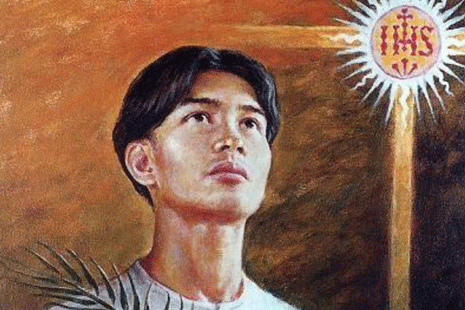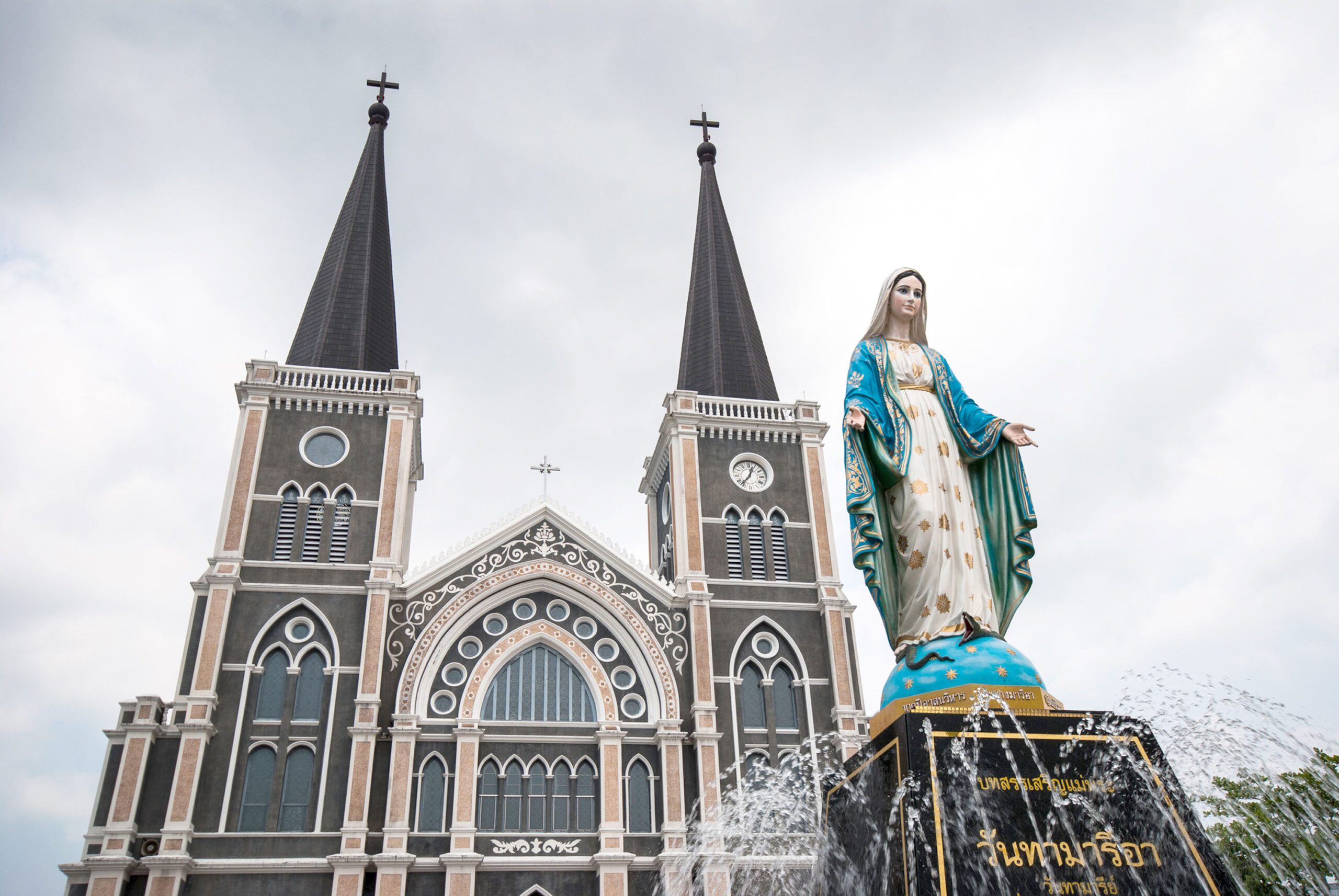Jesus seemed preoccupied with wealth as He spoke so often about it in the Gospels, which are unique in their focus on wealth and poverty. This seeming fixation by Jesus is unusual and can only be attributed to the Gospel writers. Jesus never wrote anything, unlike Mohammed, who took dictation from God through the angel Gabriel. We assume the Gospel writers from oral tradition passed on, in written form, Jesus’ words on wealth and poverty.
THE ECONOMIC LANDSCAPE
Jesus wasn’t speaking to Wall Street types but largely to rural people who made their living from farming, herding, and fishing. While Jesus finally went up to the big city of Jerusalem to meet His end, He spent most of the time in rural Galilee. The population of Palestine in Jesus’ time was estimated to be between 500 to 600 thousand while, today, the similar geographical area has approximately ten million people. Those who heard Jesus speak on the issue of wealth and poverty were quite small in number. Without any form of communications media, it is understandable that Jesus was constantly on the road to share His jarring message.
The situation at that time was probably similar to that of today; the 1% of the wealthy had a vast disproportion of wealth while the masses languished, depending on luck to get their daily bread. The poor had no barns to stock up their reserves, as with the majority of people today, who live from day to day with nothing set aside for the rainy days.
Few wealthy persons were probably in the audience. One wonders if the writers wrote them into their accounts. There, however, is the instance of the rich man who could not swallow Jesus’s challenge to go and sell what he had and give it to the poor. The Gospel writers note: “At this, the man’s face fell, and he went away sad, for he had many possessions.” It was then that Jesus turned to those remaining, those without, and said, “How hard it is for the rich to enter the Kingdom of God.” We are told that those who remained were amazed at the pronouncement. Jesus repeated Himself so that they will get what He is saying. With this example, Jesus turned their understanding upside down; that is, that the rich were not the elect of God after all! The traditional thinking was that they were wealthy because they were doing things rightly. But Jesus says not so!
Although written from different sources, the Gospels agreed on Jesus’ position, often insinuating that the wealth that the rich amassed is ill-gotten. The Letter of James also affirmed this Gospel thinking that the rich’s wealth is often questionable. “Look! The wages you failed to pay the workers who mowed your fields are crying out against you.” Biblically, wealth is often viewed with suspicion that it may have been accrued though injustice. This was an about face to the belief that was commonly held. It must have been liberating for Jesus’ listeners to sense that the rich were rejected by God.
Possibly, few of Jesus’ listeners possessed great wealth, if at all they had it, because economic classes generally do not mingle. One of the songs in the musical Camelot goes: “I wonder what the peasants are doing tonight”; but this is fanciful, the stuff of a musical. The wealthy spend little time thinking about the plight of the poor. In Haiti, some of the less than 1% who enjoy the wealth of that most impoverished country are able to take a helicopter from their homes to the airport, passing the sprawling slum that is Port au Prince. They take flights to shop in Miami’s malls, and then fly back, again via helicopter, up the hills, avoiding the teeming masses of poor citizens. Jesus, on the other hand, was focused on the poor, engaged with the multitudes. He didn’t try to avoid them but purposefully sought them out and engaged with them. “And he looked out on the crowds and was moved with compassion for them.” Therefore, the litmus test for discipleship was how to treat the least ones rather than, “he who dies with the most toys wins!”
THE DESIRE FOR MORE
Money is often cited as the root of all evil but the scriptural teaching is that the desire for money, and not money itself, is the root of the problem. “For the love of money is the root of all evils.” Money should be a means to an end but when it becomes the end, mammon is worshipped. In speaking to the masses that had little, nonetheless, Jesus would speak of a cautionary tale: “Take heed and beware of all desire; for one’s life does not consist in the abundance of one’s possessions.” Even if one has little, one can be possessed by them.
There seems to be an innate desire to hunger for more. In fact, there is a book entitled just that, The Hunger for More, which examines how one’s wants exceeds his or her needs, and the difficulty to restrain this lust, especially since media bombards us daily to tempt us to seek more and more and more. The antidote Jesus offers is to lay up treasures in heaven, i.e., seek the immaterial – joy, peace, love, truth, etc. The gifts of the Spirit provide richness to a person’s inner life. That is, if one nurtures an inner life. Otherwise, we are but a shell of a person. As a poet observed: “Getting and spending, we lay waste our powers.”
THE WAKE-UP CALL
Those advancing in age often speak and act about downsizing, living with less, extricating themselves from all the useless stuff they accumulated over the years, realizing that, in advanced years, having is more of a burden than a blessing, and that the real wealth is health. Finally, for some, the wisdom of “less is more” is achieved. But taking to heart Jesus’ teaching on material possessions, one doesn’t have to reach advanced years to possess this wisdom. It is here for the taking.
Sometimes, Mother Nature teaches us the hard way; one only realizes what is really of value when one’s house is destroyed and possessions are taken by fire or flood. It is then that some have a “eureka moment,” when they realize the most precious possession they have is the gift of one’s life, family, friends, and neighbors. Things may be replaced but not a unique life. Such is irreplaceable.
Hence, Jesus’ teaching to the multitudes cautioned about the desire to build bigger barns. He told a parable of a rich man who had such a bountiful harvest that he had to pull down his barns and build bigger ones. Then the rich man said to himself: “Soul, you have ample goods laid up for many years; take your ease, eat, drink, and be merry.” But a disturbing thought saw it otherwise. “Fool! This night your soul is required of you, and the things you have prepared, whose will they be?”
People with money, as well as those without money or material means, can equally become a slave to mammon. Jesus warns us that we can’t have two masters. Most believers might not judge themselves as putting mammon before God, but in practice, where is our heart? “For where your heart is, there is your treasure.”
WANTS VS. NEEDS
All can easily fall victim to the desire to consume more than we need. How many of us can clearly distinguish between wants and needs? There is a movement in England today, “The Joy of Enough,” which seeks to encourage people to know the difference between wants and needs, to become responsible consumers, not the ones hypnotized by advertisements to acquire more or desiring more than we need, but to freely put the brakes on consumption and to realize what really matters.
A sign that people lust for more is the purchase of lottery tickets. People will sometimes squander money and forego their daily needs to buy lottery tickets in the hope of winning the big one. Most persons who buy lottery tickets are people on the lower rung of the economic ladder. The lottery ticket is often called a tax on the poor because many governments depend on lottery monies to pay for the government expenditure of others. It is only the mega lottery that attracts the wealthy to buy tickets. But it is the poor who create the mega pool of money from their hard-earned cash, driven by the possibility to increase their material well-being. It is understandable why poor people would be tempted to purchase lottery tickets, but the purchase of the tickets only makes them poorer.
COST OF DISCIPLESHIP
Jesus sought disciples for the Kingdom of God. He sought to imbue simple people with a sense of mission. The cost of discipleship is being other-oriented, dying to self. This is a fierce challenge as we are so self-oriented, acting most of the time out of self-interest even when we convince even ourselves that we are not. If we allow ourselves to be subjected to scrutiny, our true motives could be easily unmasked. Dying to oneself in today’s psychological understanding is letting go of the ego. Most of our energy is spent on reinforcing the ego. The paradox of the Christian life is dying and rising, dying to the self to rise to newness of life.
When Jesus sent out 72 disciples, He instructed them to take nothing for the journey. The number 72 is significant because it underscores Jesus’ commissioning of many persons to proclaim the Kingdom of God, not simply the 12 closest to Him. “Carry no purse, no bag, no sandals…” In this teaching, Jesus is seeking persons who will not be concerned about their own security but those who will embrace insecurity and limitations, and will accept dependence on others rather than be focused on self-sufficiency. Service to others is where the self dies. When one’s goal in life is to build bigger barns, one can become ruthless in the process and use and abuse others, becoming unjust in the process. To pursue bigger barns as a goal makes mammon our god. The material becomes an end and not a means. Mammon has prevailed.
More than themselves, people want their children to be successful in life. But if success is measured primarily by material gain, then children are being sent on a dangerous mission for they can easily lose their soul in the process.
Many parents feel they have failed if their children embrace a mission to serve others, if they pursue work to assist the well-being of others, often involving insecurity or less monetary compensation and prestige. They, however, should compliment themselves for raising children who know the difference between what matters and what seems to matter.
DISTINGUISHING GOD VS. MAMMON
The struggle for one’s daily bread is overwhelmingly consuming. So, is the teaching of Jesus only for a particular class of people? Jesus spoke to those for whom the pursuit of their daily bread was provisional – people at the bottom of the economic ladder or who lived along the margins of society; people in dire straits can do dire things for survival. The poor, as well as the wealthy, are subject to stealing. They, too, can resort to horizontal violence especially toward one another in seeking a material end. When Jesus asked, “what do you think?” after sharing a parable, He is actually engaging even the least ones in critical thinking about their lives. It is important for all persons to reflect on their decisions, even those faced with very limited choices or none.
The parable method of Jesus was similar to the Socratic Method. Both methods are about asking and answering questions to stimulate critical thinking. They were not teaching from the top down or considered people as having the mind of a tabula rasa – a blank slate, born without any mental context. Both sought to draw persons into the conversation and have them share their thinking or how they interpreted things.
There is a creative ministry developed in Germantown, Maryland entitled “The Ministry of Money.” It offers retreats for people to examine their attitude toward money and material things. Part of the examination centered on one’s family’s financial history even if the family struggled to survive materially. What were the attitudes fostered and passed on? What baggage does one carry with him/her from the family experience of having or not having money and material means? Cultural and societal attitudes and how people overtly process them are also examined. How many persons would subject themselves to such a reflection? It, however, offers a practical means to determine who’s first, God or mammon?
I had an uncle in Ireland. He was born years after “The Great Famine” which devastated the country and its people. The oral tradition of this event was powerful, affecting the psyche of the people for a long time after it happened. For those who didn’t migrate, the overriding fear was to end up in the poor house. This would be tantamount to a death sentence. As a result, my uncle hoarded what little money he earned. He was fearful of spending anything as it would possibly put him in great jeopardy in later years. There was no pension or state supported social net. It depended on each one to prepare for their future. He became a victim to what little money he had. Ultimately, he died of malnutrition, despite having money in the bank. His trust was in mammon.
To be on a mission for the Kingdom of God seeks to balance means and end, self and others, the material and immaterial, security and insecurity. Essentially, it means being focused more on the common than the achievement of personal good. Unfortunately, many religious emphases are placed on external observances or rituals. Jesus’ teaching on God and mammon is to take an inner journey to question our attitude toward material possessions, to challenge ourselves to where our heart truly lies. This is best facilitated in a community that creates the environment for discernment. Alas, there are few communities which enable such self-journey to unmask mammon. It seems the more common journey is: through life’s trial and error, when a person gains and losses things, money and might have an epiphany that mammon was one’s god.
“The best things in life” are not the things a bumper sticker proclaims. Journeying with Jesus, we are provided with food that is not bread alone. In our willingness to be a disciple like those on the road to Emmaus, who realize their hearts were burning within them, we, too, can receive illumination from His presence.





























